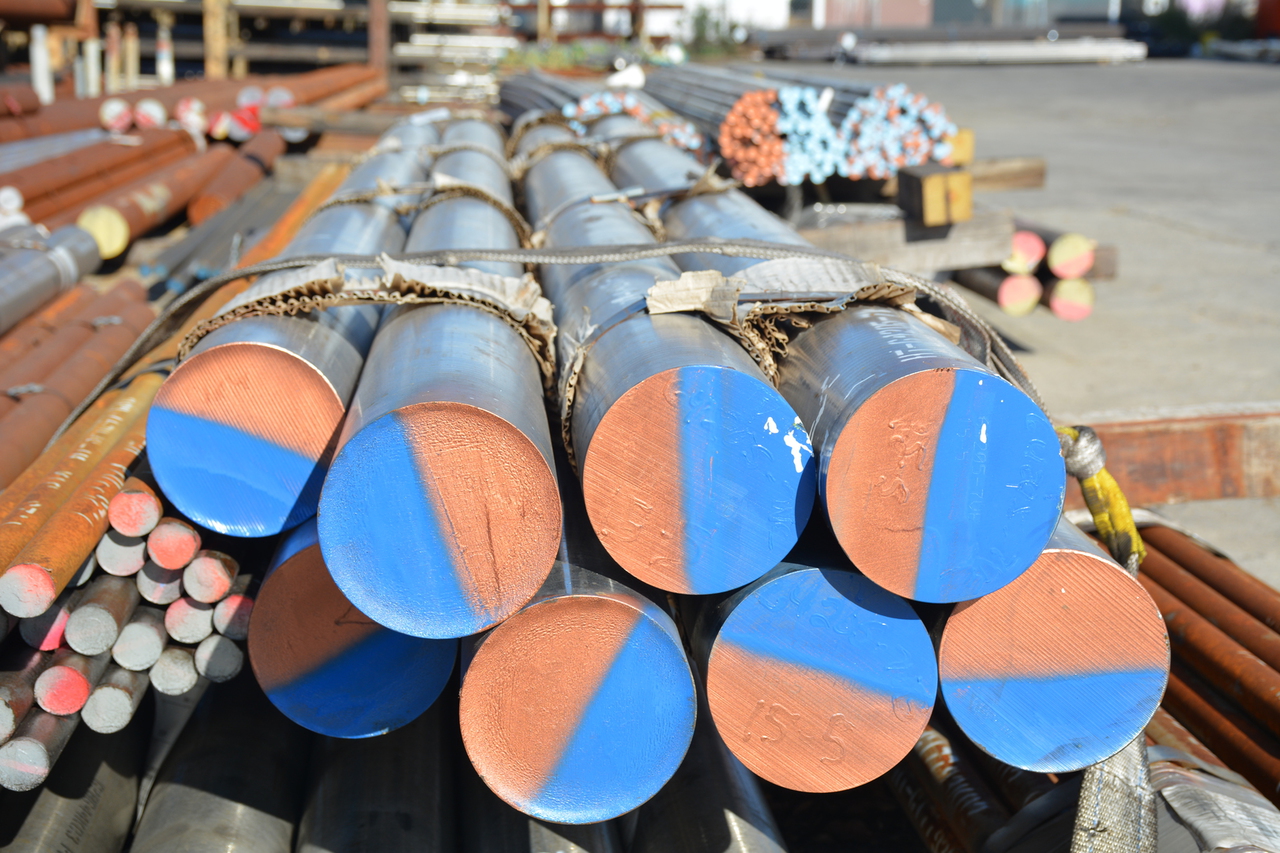Titanium is well known for its strength, lightness, and bio-compatibility, has established a dominant role in industries spanning from aerospace to medicine. Its versatility is not just about its intrinsic characteristics but also the range of grades available that cater to diverse applications.
Basics of Titanium and Its Properties
Titanium is a silverish-white transition metal, known mainly for its high strength-to-weight ratio. Its elemental number is 22, and it is symbolized by Ti on the periodic table. Some of its primary attributes include:
- High Strength-to-Weight Ratio: One of the primary reasons industries like aerospace have adopted titanium is its strength comparable to that of some steels but at roughly half the weight.
- Corrosion Resistance: Titanium exhibits extraordinary resistance to corrosion, especially against elements like chlorine and sea water. This feature makes it an excellent choice for applications in marine environments.
- Biocompatibility: This metal is bio-inert, meaning it’s non-toxic to the human body. This property has paved the way for its use in surgical instruments and implants.
- Excellent Heat Resistance: Titanium can maintain its structural properties at elevated temperatures, making it valuable in sectors where high-temperature resilience is a necessity.
- Low Thermal Expansion: Its low coefficient of thermal expansion ensures minimal deformation and warping under temperature fluctuations, an attribute cherished in precision applications.
Why Different Grades Exist
But why is there a need for different grades of titanium? The simple answer is, no single material can meet the diversified requirements of all applications across various industries.
- Alloying Elements: The most significant difference between various grades lies in their alloying elements. By adding elements like aluminum, vanadium, and iron, among others, specific grades of titanium can be tailored for strength, ductility, or other desired properties. For instance, the combination of aluminum and vanadium in Titanium Grade 5 boosts its strength, making it apt for aerospace applications.
- Strength vs. Ductility: While some applications may prioritize sheer strength, others might require higher ductility (the ability to be drawn into a wire or stretched without breaking). Different grades of titanium cater to these specific needs.
- Bio-compatibility Requirements: In medical applications, the purity of the titanium is critical to prevent any adverse reactions in the human body. Thus, grades such as Titanium Grade 2, known for its high purity, are preferred for implants and prosthetics.
- Cost Constraints: Pure titanium is more expensive to produce than its alloyed counterparts.
Common Elements Alloyed with Titanium
Here are some of the common alloy elements and their effects:
- Aluminum (Ti-6Al-4V): Thanks to its superb combination of high strength and anti-corrosion properties of Ti-6Al-4V, often employed in aerospace, marine and medical sectors.
- Vanadium (Ti-6Al-4V): Vanadium is an important additive for titanium, as it increases its strength and heat tolerance. This ability to stand up to extreme temperature and pressure makes this metal essential in the aerospace industry.
- Molybdenum (Ti-5Al-2.5Sn): Molybdenum has the effect of bolstering an alloy’s tensile strength and makes it more robust to crevice corrosion, thereby rendering it suitable for marine applications and parts that are regularly exposed to chloride-containing environments.
- Nickel (Beta Titanium Alloys): Nickel-containing titanium alloys known as ‘betas’ boast an impressive pairing of strength and flexibility, making them highly suitable for use in items such as springs and orthopedic implants.
- Zirconium (Zr 702): Zirconium is added to improve corrosion resistance, particularly in highly aggressive chemical environments. Zirconium-alloyed titanium is used in chemical processing equipment.
- Iron (Commercially Pure Titanium): Commercially pure titanium contains small amounts of iron, offering excellent corrosion resistance, formability, and weldability. It’s commonly used in chemical processing and architecture.
Titanium Grade 1: The Purest Form
Characteristics: Titanium Grade 1, often referred to as commercially pure titanium, is the purest form of titanium with a minimum purity of 99.5%. It boasts excellent corrosion resistance, particularly in environments containing chlorides.
Benefits:
- Corrosion Resistance: Grade 1 titanium excels in resisting corrosion, making it ideal for marine and chemical processing equipment.
- Lightweight: Its low density and weight make it valuable in applications where weight reduction is crucial, such as aerospace.
- Biocompatibility: The absence of alloying elements like aluminum and vanadium makes it biocompatible, making it suitable for medical implants.
Typical Applications:
- Heat exchangers and condensers
- Marine components
- Chemical processing equipment
- Medical implants (surgical instruments, dental implants)
- Architecture (cladding, roofing)
Titanium Grade 2: Balanced Strength and Ductility
Characteristics: Titanium Grade 2, also known as commercially pure titanium with a minimum purity of 99.2%, strikes a balance between strength and ductility. It offers excellent weldability, formability, and corrosion resistance. While it lacks the higher strength of some alloys, it is highly versatile and cost-effective.
Benefits:
- Weldability: Grade 2 titanium can be easily welded using various techniques, making it suitable for fabricating complex structures.
- Ductility: Its ductility allows for forming and shaping into various components, making it adaptable to different manufacturing processes.
- Corrosion Resistance: It provides good resistance to corrosion, especially in mildly corrosive environments.
Typical Applications:
- Aircraft components (airframes, fasteners)
- Chemical processing equipment
- Heat exchangers
- Cryogenic vessels
- Architecture (structural elements)
Titanium Grade 5 (Ti-6Al-4V): The Workhorse
Characteristics: Titanium Grade 5 is also known as Ti-6Al-4V. It consists of 90% titanium, 6% aluminum, and 4% vanadium. Ti-6Al-4V is known for its impressive mechanical properties.
Benefits:
- High Strength: Ti-6Al-4V offers a superior strength-to-weight ratio, making it suitable for aerospace and automotive applications.
- Corrosion Resistance: It maintains good corrosion resistance, particularly in marine and aerospace environments.
- Heat Tolerance: The alloy retains its strength and structural integrity at elevated temperatures, making it ideal for aircraft engine components.
Typical Applications:
- Aircraft components (engine components, landing gear)
- Aerospace fasteners
- Medical implants (orthopedic implants, prosthetics)
- Marine equipment
- High-performance sports equipment (bicycle frames, golf clubs)
Titanium Grade 7: Superior Corrosion Resistance
Characteristics: Titanium Grade 7 is an alloy that includes 0.12-0.25% palladium, enhancing its corrosion resistance, particularly in acidic and chloride-rich environments. It retains many of the desirable characteristics of commercially pure titanium, such as good formability and weldability.
Benefits:
- Enhanced Corrosion Resistance: The addition of palladium significantly improves corrosion resistance, making Grade 7 suitable for highly corrosive applications.
- Formability: It maintains good formability, allowing for the fabrication of complex components.
Typical Applications:
- Chemical processing equipment (reactors, vessels)
- Desalination plants
- Marine environments with high chloride exposure
- Jewelry (due to its resistance to skin corrosion)
- Architecture in coastal areas
Titanium Grade 9: Strength and Flexibility Combined
Characteristics: Titanium Grade 9, also known as Ti-3Al-2.5V, is an alloy that contains 3% aluminum and 2.5% vanadium. It offers good weldability and corrosion resistance, making it versatile in various industries.
Applications:
- Aircraft hydraulic systems and tubing
- Bike frames
- Marine components
- Heat exchangers
Medical Grade Titanium: Biocompatibility Matters
Characteristics: In medical applications, Grade 1, Grade 2, and Grade 4, are used due to their low reactivity and ability to integrate with the human body without causing adverse reactions.
Applications:
- Orthopedic implants (hip, knee, and dental implants)
- Surgical instruments
- Cardiovascular devices (stents and pacemaker cases)
Aerospace and Titanium Grades
Applications:
- Aircraft components (airframes, landing gear, fasteners)
- Jet engines (blades, discs, and casings)
- Spacecraft structures
Marine Applications: Seeking Corrosion Resistance
Applications:
- Boat hulls and propellers
- Seawater desalination equipment
- Offshore oil and gas platforms
Manufacturing and Titanium: Choosing the Right Grade
Applications:
- Aerospace components (fasteners, brackets)
- Automotive parts (valve springs, connecting rods)
- Consumer goods (eyeglass frames, golf clubs)
Grade Selection: Cost versus Performance
Considerations:
- Performance Demands: High-performance grades, while more expensive, offer superior mechanical properties and corrosion resistance, justifying their cost in critical applications.
- Availability: Common grades like Grade 2 are readily available and cost-effective for less demanding applications.
- Processing Ease: Some grades are more difficult to machine or weld, increasing manufacturing costs.
Future of Titanium Alloys
Potential developments in titanium alloys include:
- Additive Manufacturing: Titanium alloys designed for specific additive manufacturing processes to unlock new possibilities in complex component production.
- Biomedical Innovations: Ongoing research to create new titanium alloys with enhanced biocompatibility and tailored properties for medical applications.
- Sustainability: The development of environmentally friendly titanium alloys with reduced carbon footprint and energy consumption.
Common Misconceptions about Titanium Grades
Common misconceptions include:
- All Titanium Is the Same: Different grades have distinct properties and are suitable for specific applications.
- Higher Grade Is Always Better: The best grade depends on application requirements; higher grades may not be necessary in less demanding scenarios.
- Grade Nomenclature Is Universal: Not all countries use the same grade numbering system, so understanding the composition is crucial.
Standardized Testing and Grade Verification
To ensure the authenticity of titanium grades, standardized testing methods, and certifications like ASTM, ISO, and AMS are crucial. These tests verify the material’s properties and composition, ensuring it meets the specified grade requirements.
Related article: Best Practices for Storing and Handling AMS Metals
Are you in search of top-grade Stainless Steel, Titanium, or Alloys? Look no further!
FriendMetals.com is your one-stop destination for AMS Aerospace Metals. From sourcing to forging, we’re the trusted experts in the industry.
Visit us at: 14729 Spring Ave, Santa Fe Springs, CA 90670
Call us: Local: 714-632-0140 Toll-Free: 800-854-6777

